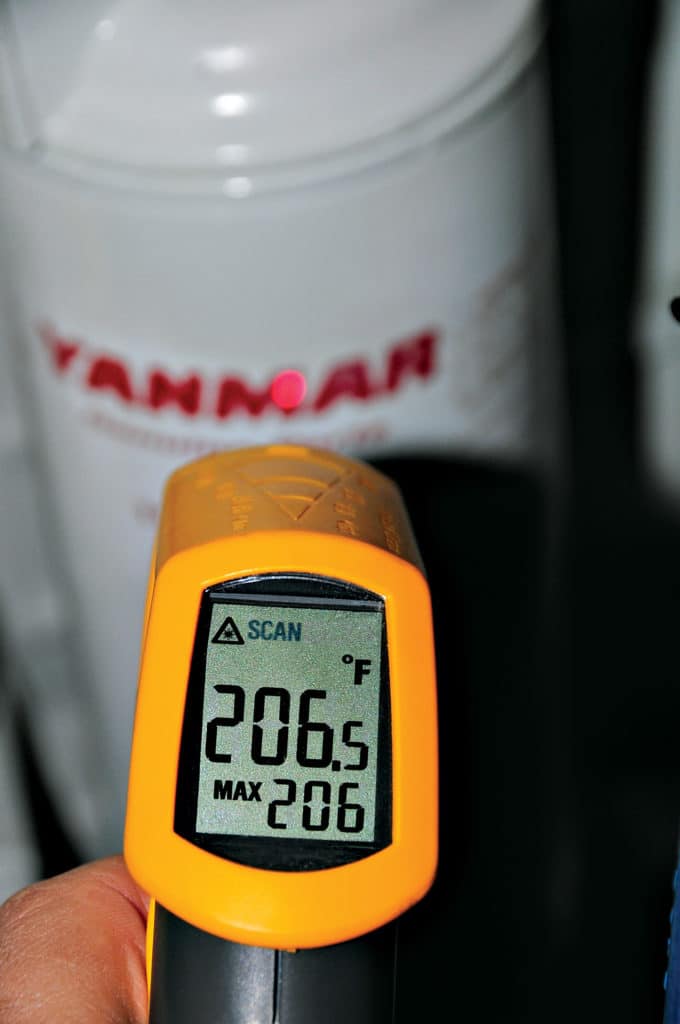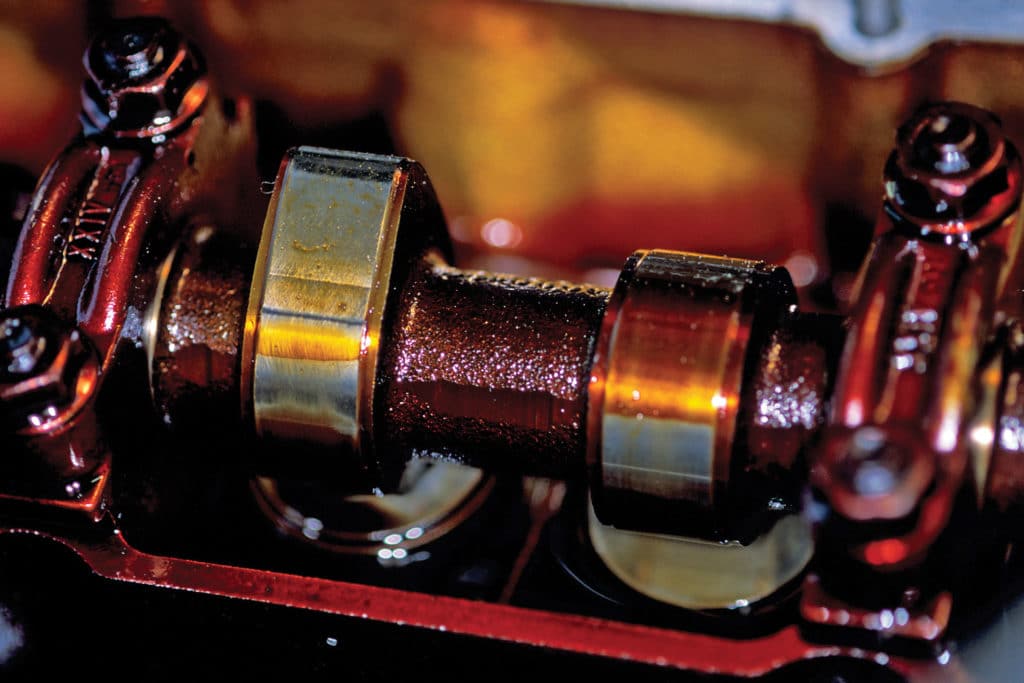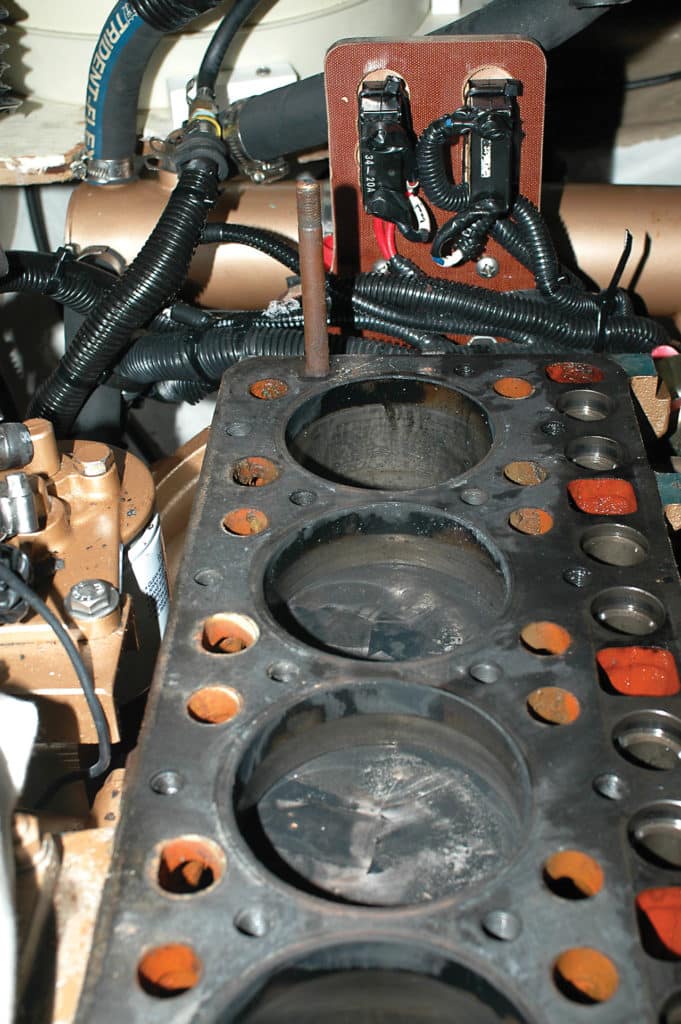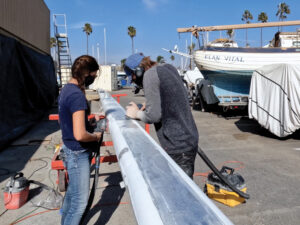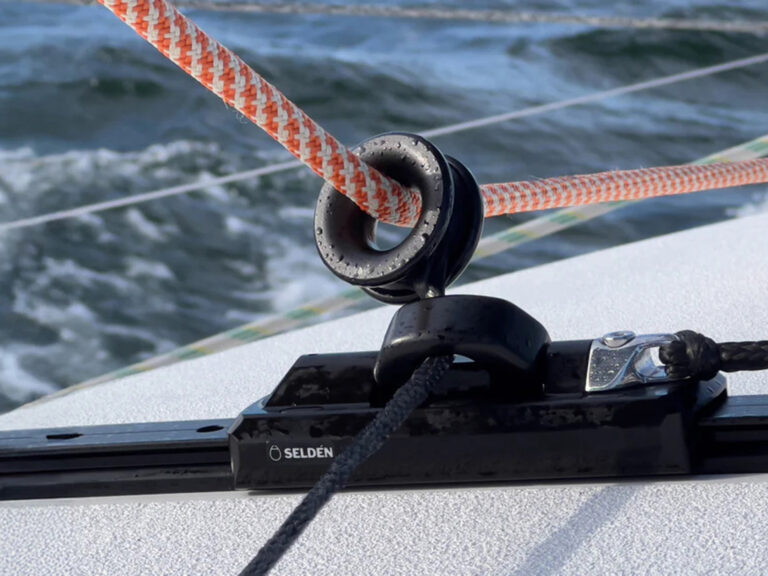We modern-day sailors of contemporary cruising boats have become very familiar with synthetic formulations. From Kevlar laminate reinforcement and Dacron sails to Spectra line and Teflon packing material, we’ve not only come to trust products made from scientifically synthesized materials, but they’ve taken on an aura of superiority, and often with good reason. It’s not surprising, then, for many boat owners to consider using synthetic-based oil in auxiliary engines. After all, the benefits of synthetic lubricants are undeniable.
Or are they?
The most common type of synthetic motor oil lubricant is a polyalphaolefin (PAO)-based lubricant. Through a process known as polymerization, it creates a pure formulation of uniform molecular chains. Mineral-based oils, on the other hand, are refined from crude oil, yielding a molecular uniformity that is significantly less consistent than their synthetic counterparts.
Initially developed for the severe environment found in gas turbine or jet engines, synthetic oils create stable, predictable and desirable lubrication as a result of their uniformity. When compared to mineral-based oils, among other attributes, synthetic lubricants exhibit superior oxidative and thermal stability. In other words, when exposed to high temperatures, they resist oxidation (a mixture with and reaction to air) and deterioration. Synthetic oils also possess a high viscosity index (VI), which means their viscosity changes very little from a cold start-up to hot operating conditions (i.e., they flow better when cold, yet maintain excellent lubricating ability when hot). In broad terms, the higher VI equates to less wear and better fuel economy.
Oil churns and aerates in a crankcase, and it’s exposed to the very high temperatures found at piston rings and exhaust-valve stems. The high temperatures and rpm found in turbochargers, for engines so equipped, add additional challenges to the oil’s ability to provide lubrication and heat removal. Many engines rely on oil jets, which spray oil under the pistons for heat removal, further testing the oil’s ability to resist thermal breakdown. Under such conditions, synthetic oil seems like a natural choice.
Synthetics have a few other advantages. Their demulsibility, or ability to shed or release water, exceeds that of mineral oils, as does their hydrolytic stability, which is their resistance to breakdown as a result of exposure to water. For all those reasons, I’m a firm believer in the attributes of synthetic oils. I use them, when specified by the manufacturer and where it makes technical and economic sense, in my own equipment. Many of today’s diesel automobile and truck manufacturers mandate — i.e., it’s not an option — the use of synthetic oil in their engines.
So what’s not to like?
As good as synthetic oils are, as our vessels’ “engineers,” we should choose the oil best suited for the application, and not simply the best oil. Synthetic oil enables, with some caveats, extended oil-change intervals. And yes, synthetic oil provides the greatest advantage in extreme operating conditions, which include high load and extreme heat — conditions that typically are not present in sailing auxiliaries. At three to four times the cost of conventional mineral oil, the return is limited when the conditions don’t warrant the use of synthetic oil.
Ultimately, provided it meets your engine manufacturer’s specifications, there’s no harm in using synthetic oil; it may provide a small measure of added protection and lubrication. However, don’t expect miracles from synthetic oil. Most diesel auxiliaries don’t wear out; they die from chronic underloading and the carbon deposits it produces; failure of “bolt-on” external components; overheating; and, of course, the ever-present specter of corrosion. Synthetic oil’s a good product. It’s not a miracle worker.
Steve D’Antonio offers services for boat owners and buyers through Steve D’Antonio Marine Consulting (stevedmarineconsulting.com).
